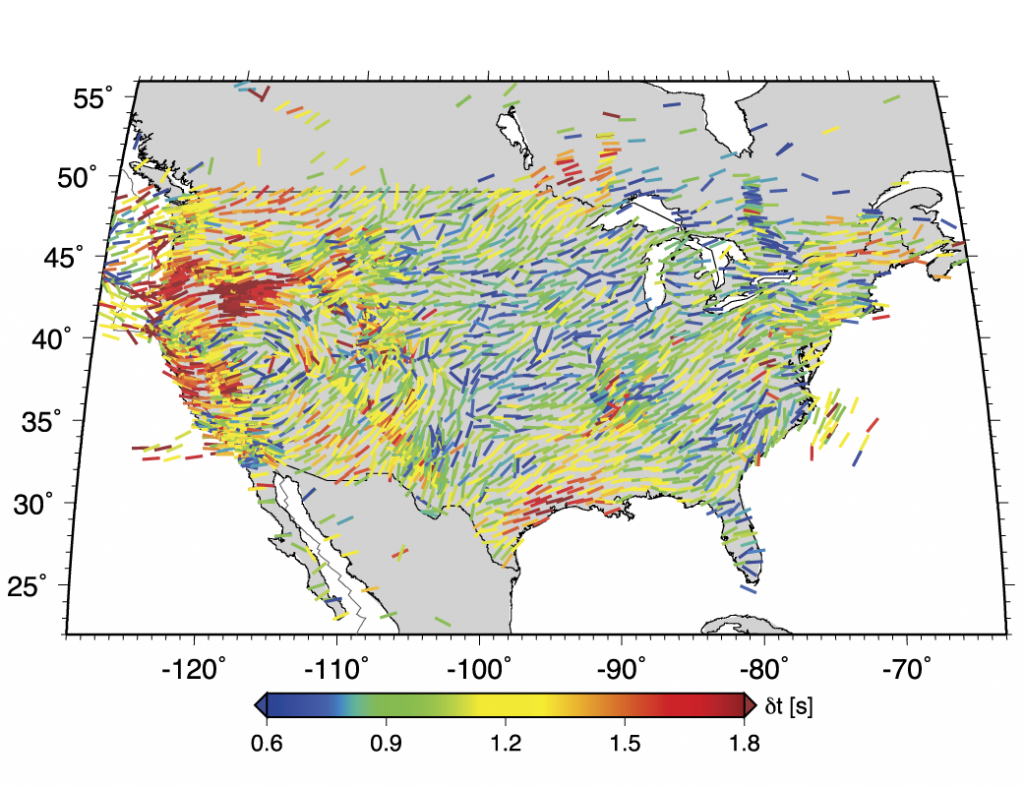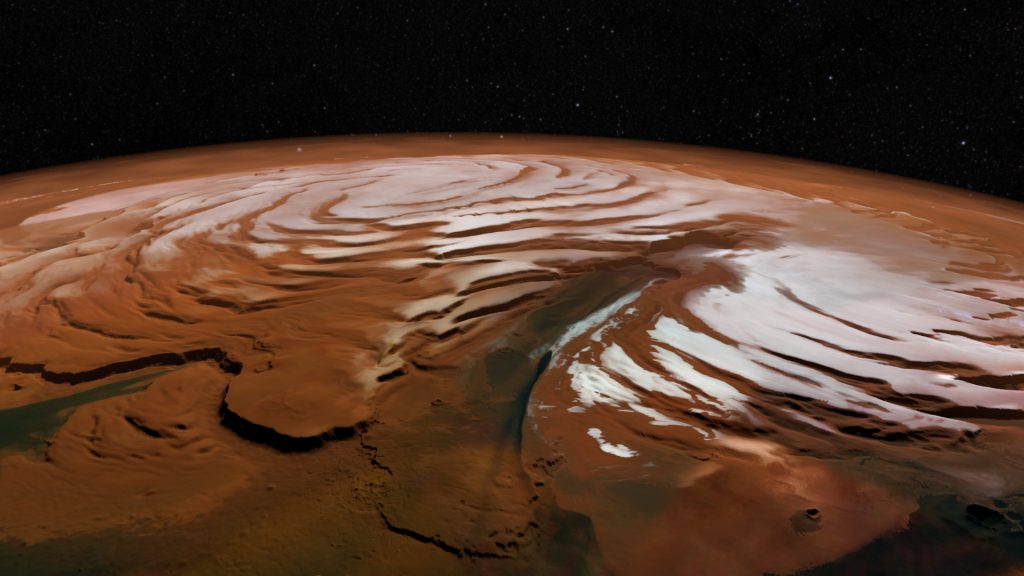AUSTIN, Texas — The University of Texas at Austin has hired Demian Saffer as the next director of the University of Texas Institute for Geophysics (UTIG). Saffer, a professor and head of the Department of Geosciences at Penn State University, is an internationally known geophysicist with a proven background in leading major scientific missions. UT… Continue Reading Demian Saffer Named Director of the UT Institute for Geophysics
New Study Reveals Layers of Textured Mantle ‘Frozen’ into North American Plate
The North American plate is a medley of geological parts that protrude into Earth’s mantle like tree branches frozen into the surface of an iced-over lake. Research from The University of Texas at Austin has proposed a new method to map these ‘frozen-in’ layers of the tectonic plate and reveal how it interacts with the… Continue Reading New Study Reveals Layers of Textured Mantle ‘Frozen’ into North American Plate
New NSF Grant Awarded to Study Earth’s “Flat Slabs”
A $2.7 million multi-disciplinary, multi-institutional NSF-Frontiers of Earth Science grant has been awarded to a team led by Carnegie’s Lara Wagner to study an active flat slab in Colombia. A flat slab is produced when a tectonic plate descends to depths of about 30 to 60 miles (~50-100 km) then flattens and travels horizontally for… Continue Reading New NSF Grant Awarded to Study Earth’s “Flat Slabs”
UT Study Shows How To Produce Natural Gas While Storing Carbon Dioxide
New research at The University of Texas at Austin shows that injecting air and carbon dioxide into methane ice deposits buried beneath the Gulf of Mexico could unlock vast natural gas energy resources while helping fight climate change by trapping the carbon dioxide underground. The study, published May 26 in the journal Water Resources Research,… Continue Reading UT Study Shows How To Produce Natural Gas While Storing Carbon Dioxide
Massive Martian Ice Discovery Opens a Window into Red Planet’s History
Newly discovered layers of ice buried a mile beneath Mars’ north pole are the remnants of ancient polar ice sheets and could be one of the largest water reservoirs on the planet, according to scientists at The University of Texas at Austin and the University of Arizona. The team made the discovery using measurements gathered… Continue Reading Massive Martian Ice Discovery Opens a Window into Red Planet’s History
- « Previous Page
- 1
- …
- 17
- 18
- 19
- 20
- 21
- …
- 23
- Next Page »





